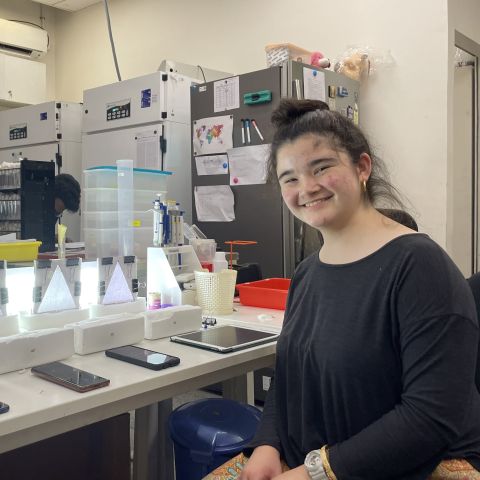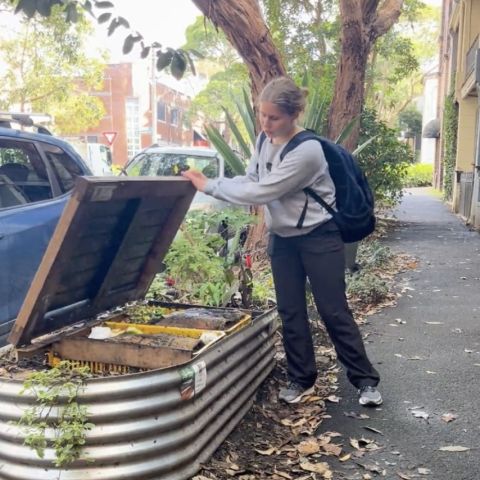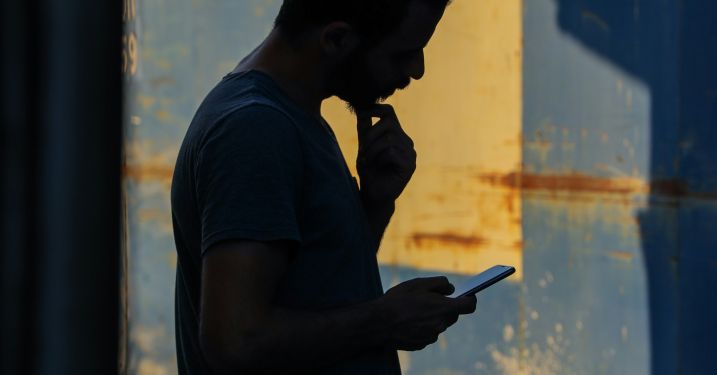Institute for African Development
Addressing Xenophobia in the Southern African Region
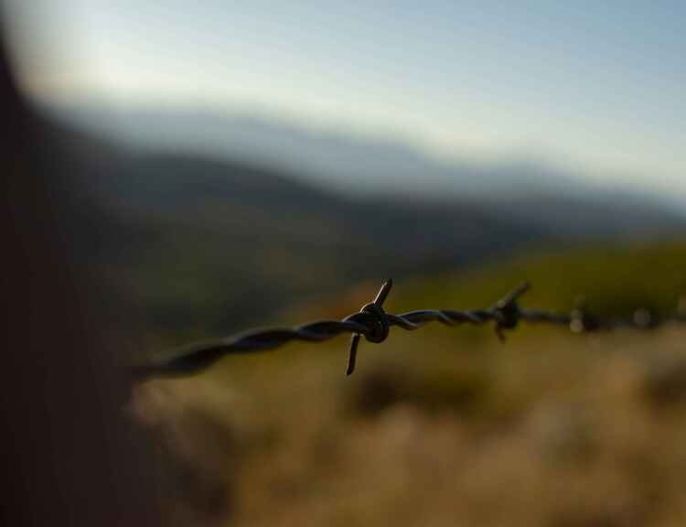
October 8, 2025
3:00 pm
401 Warren
Recent decades have seen a surge in extreme anti-immigrant rhetoric in many countries and regions, including the Southern African Region, despite the African Union's emphasis on continental mobility as a key aspect of sustainable development. Xenophobia, a form of hatred directed at foreigners, immigrants, and people who are perceived as foreigners, has been flooding social media. The COVID-19 pandemic further amplified xenophobic sentiment in politics, the media, and online, especially toward Chinese people and people of East Asian descent (Shen et al. 2022). Documented harms to groups and individuals range from fear and dignitary insults to increased face-to-face encounters and hate-motivated violence. At the policy level, anti-immigrant sentiment leads to enforcement policies that shock the conscience. Political candidates and government leaders have “bully pulpit” options such as modulating speech about immigrants and emphasizing positive rather than punitive immigration policy, but the malleability of public sentiment encourages them to take the low road. Inter-governmental bodies and civil society, including academia, are responding to this devastating trend.
South Africa was one of the first - if not the first - country to develop a national action plan to address xenophobia. The plan was soon criticized for falling short of the “radically transformative agenda” needed to address escalating violence against immigrants effectively (Dratwa 2024). Though traditionally a country of origin, Zambia is also a country of transit and a host to migrant communities. Zambia “awoke to [the] scourge” of xenophobia in a 2016 incident of mass violence against Rwandan refugees in Lusaka (Akinola 2018). As the tenth anniversary of this attack approaches, our speakers will discuss deeper meanings behind xenophobia and how the Southern African Region is addressing this scourge.
https://new.express.adobe.com/webpage/4nc1Pm2D0Z95r
Panelists
O’Brien Kaaba is a Lecturer in Law and Assistant Dean for Research in the School of Law at the University of Zambia, and a Senior Research Fellow at the Southern African Institute for Policy and Research (SAIPAR). His expertise spans comparative constitutional law, African human rights, and protection of outsider groups. Dr. Kaaba has held numerous policy roles. He formerly served in Zambia as the elections manager for the national Democratic Institute for International Affairs (NDI), political specialist for he US Department of State at the US Embassy, Lusaka, and as a human rights and rule of law advisor for the germany Development Cooperation (GIZ). A graduate of the Central European University and the University of Zambia School of Law, Dr. Kaaba is the co-editor of Democracy and Electoral Politics in Zambia (Brill, 2020).
George Makari is Director of the DeWitt Wallace Institute of Psychiatry: History, Policy, and the Arts, Dr. Makari is Professor of Psychiatry at Weill Cornell Medical College, where he also is in clinical practice. For over a decade, he was the director of the Payne Whitney low-cost psychotherapy clinic. He is Guest Professor at both Rockefeller University and the Columbia University Center for Psychoanalytic Training and Research. A historian, essayist, psychoanalyst, and psychiatrist, Dr. Makari is the author of Of Fear and Strangers: A History of Xenophobia, winner of the Anisfield-Wolf Book Award, a Bloomberg Best Non-Fiction of the year, and a New York Times Editor's Choice. He also wrote Soul Machine: The Invention of the Modern Mind, a 2015 Guardian Best Book of the Year that the Wall Street Journal called "brilliant" and "essential reading," and the widely acclaimed Revolution in Mind: The Creation of Psychoanalysis, which the Financial Times called "magisterial." His books have been translated into twelve languages. His essays have won numerous honors and have appeared in The New Yorker, The Atlantic, Raritan, The New York Times, and the Los Angeles Review of Books. He conducts a podcast with artists and writers on the nature of the imagination. He is a graduate of Brown University, Cornell University Medical College, and the Columbia Psychoanalytic Center.
Moderator
Beth Lyon is a Clinical Professor of Law at Cornell Law School where she serves as Associate Dean for Experiential Education, Clinical Program Director, and Founding Director of the Farmworker Legal Assistance Clinic. Prior to joining the Cornell Law faculty, Professor Lyon worked at Villanova Law School, Washington College of Law, American University, and Human Rights First, and held internships at Ayuda, Comisión Andina de Juristas, Friends of the Earth, and Centre on Housing Rights and Evictions. Her clinic provides free deportation defense services and policy research support to low-income farmworkers and farmworker communities. Her areas of scholarly focus include domestic and international migrant and farmworker rights, language access to justice, controlling government xenophobic speech, and provision of legal services to rural minorities. A graduate of the University of North Carolina, Chapel Hill, Georgetown University School of Foreign Service, and the Georgetown University Law Center, Professor Lyon lives in Ithaca with her family.
Register
Additional Information
Program
Einaudi Center for International Studies
Institute for African Development
Spring Break African Popular Music Lab in Rwanda Info Session

September 25, 2025
6:00 pm
Learn more about this spring break opportunity that includes travel to Kigali, Rwanda, where students will deepen their knowledge of studio production techniques while engaging in vibrant cross-cultural musical collaboration. Open to songwriters, performers, producers, and audio engineers, the course centers around collaborative creation with Rwandan peers, allowing participants to produce original compositions that reflect the diverse influences and techniques of African popular music.
Additional Information
Program
Institute for African Development
Spring Break African Popular Music Lab in Rwanda Info Session

September 10, 2025
12:30 pm
Uris Hall, G08
Learn more about this spring break opportunity that includes travel to Kigali, Rwanda, where students will deepen their knowledge of studio production techniques while engaging in vibrant cross-cultural musical collaboration. Open to songwriters, performers, producers, and audio engineers, the course centers around collaborative creation with Rwandan peers, allowing participants to produce original compositions that reflect the diverse influences and techniques of African popular music.
Additional Information
Program
Institute for African Development
Global Internships
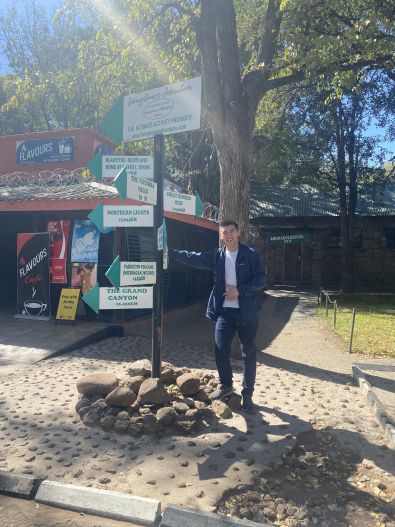
Details
Gain valuable international experience with a Global Internship! As an intern, you'll meet mentors and colleagues working in the international arena and advance your career goals.
Our Global Internships span the globe with placements at Cornell Global Hubs partner universities, community nonprofits and NGOs, and global practitioners partnering with Einaudi's regional and thematic programs. We offer internships specializing in global development, climate and sustainability, international relations, communication, business, governance, and more.
Many opportunities have several openings, giving you a chance to intern abroad next summer with fellow Cornellians.
What You'll Learn
How to Be a Global Citizen
"My internship helped me to strengthen my sense of cultural awareness, intercultural communication, and empathy."—Haruna Floate '26
How to Think Internationally
"In university, we are often taught U.S.-centric views, which can be limiting as environmental problems are global."—Hadley Flanagan '26
How to Adapt in New Places
"The number one lesson I got from the experience was the importance of being teachable. I had to go outside of my comfort zone."—Eliana Amoh '26
Funding Amount
All Global Interns receive an award to cover the estimated costs for airfare, transportation, and living expenses. A portion of the stipend may be paid directly to the in-country host to support housing, food, and local transportation. Find specific funding information under the "cost" tab on each internship’s Experience page.
How to Apply
Find out how to apply then continue exploring internship options and start your application on Experience.
Deadline and Decision
Deadline extended: Select internships are still accepting applications. Apply by January 15. We notify applications of decisions by late February.
Questions?
Joshua Kennedy is the Global Internships advisor. Select "Global Internships" in Cornell Chatter to schedule an appointment. You can also reach out by email with questions.
Meet Past Global Interns
Hear from our past interns on the Global Cornell YouTube channel.
Additional Information
Funding Type
- Internship
Role
- Student
Program
Why Do Donors Neglect Some Humanitarian Emergencies?

October 23, 2025
12:00 pm
Uris Hall, G08
What explains the fact that the humanitarian response in some crises is well funded, while other emergencies are largely neglected? How do recent funding cuts affect the work of humanitarian organizations and the lives of affected people?
This lecture will give an overview of the literature on funding allocations of humanitarian aid, focusing on three groups of factors: humanitarian needs, donor countries’ interests, and media coverage. A recent study will be presented of why donors fund some humanitarian emergencies but neglect others. The study uses a novel statistical approach, relying on an underused dataset and considering funding requirements per emergency. While humanitarian needs and donor interests play a role, the most consistent factor influencing how donors allocate their funding is media coverage.
The lecture will provide an overview of practical ways of overcoming imbalances in funding allocations and delivering aid in more effective ways. Pooled funds like the UN’s Central Emergency Response Fund (CERF) can provide funding more quickly and more strictly based on needs. CERF relies heavily on tools to make funding decisions in a systematic, evidence-based way, and is the biggest financier of anticipatory action globally.
As funding for humanitarian action is being cut, it is more important than ever to ensure the most urgent humanitarian needs of affected people are identified and addressed.
About the speaker
Nicolas Rost is head of programme for the UN’s global humanitarian fund, CERF. At the Central Emergency Response Fund, Nico works on providing humanitarian financing as quickly as possible for new emergencies, for anticipatory and early action, and for neglected and underfunded crises. Previously, he worked on evaluations of humanitarian programmes, on coordinating development programmes in Palestine, humanitarian funds in Somalia, the Central African Republic and Yemen, for the UN’s refugee agency in the Central African Republic and Geneva, and for a German NGO in Madagascar. Nico is also a visiting scientist at the Harvard Humanitarian Initiative where his research focuses on early warning signs of humanitarian crises. He holds a Master’s degree in political science from the University of North Texas, and a Master’s and PhD in politics and public administration from the University of Konstanz. He has published a book and, together with his co-authors, articles on anticipating displacement, genocide and civil war, mediation and peacekeeping, in the International Journal of Forecasting, the Journal of Conflict Resolution, Journal of Peace Research, and other journals. He lives in Brooklyn, New York, with his wife and their three sons.
Host
Reppy Institute for Peace and Conflict Studies, part of the Einaudi Center for International Studies
Co-host
Africana Studies and Research Center
Co-sponsor
Institute for African Development
Additional Information
Program
Einaudi Center for International Studies
Reppy Institute for Peace and Conflict Studies
Institute for African Development
Information Session: Critical Language Scholarship (CLS) Program

September 30, 2025
4:30 pm
Uris Hall, G08
The Critical Language Scholarship (CLS) Program provides fully funded immersive summer programs for U.S. undergraduate and graduate students to learn languages of strategic importance to the United States’ national security, economic prosperity, and engagement with the world. Each summer, over 500 American students enrolled at colleges and universities across the United States spend approximately eight weeks studying one of a dozen languages either overseas or virtually. Participants gain the equivalent of one year of language study, as the CLS Program maximizes language and cultural instruction in an intensive environment.
Can't attend? Email programs@einaudi.cornell.edu for more information.
Additional Information
Program
Einaudi Center for International Studies
Reppy Institute for Peace and Conflict Studies
East Asia Program
Southeast Asia Program
Latin American and Caribbean Studies
Institute for European Studies
South Asia Program
Migrations Program
Institute for African Development
Southwest Asia and North Africa Program
Information Session: Laidlaw Scholars Leadership & Research Program

October 15, 2025
5:00 pm
The Laidlaw Scholars Leadership and Research Program promotes ethical leadership and international research around the world—starting with the passionate leaders and learners found on campuses like Cornell. Open to first- and second-year students, the two-year Laidlaw program provides generous support to carry out internationally focused research, develop leadership skills, engage with community projects overseas, and become part of a global network of like-minded scholars from twenty universities worldwide.
At this session, we'll share more information about the program, including Cornell's cohort-based intercultural community-engaged learning summer experience in Ecuador, and tips for writing a successful application. Applications are due January 12, 2026.
Applicants are also strongly encouraged to attend a Q+A webinar about the summer experience in Ecuador. Q+A webinars are scheduled for November 5 and November 6.
Register here. Can’t attend? Contact programs@einaudi.cornell.edu.
***
The Mario Einaudi Center for International Studies hosts info sessions for graduate and for undergraduate students to learn more about funding opportunities, international travel, research, and internships. View the full calendar of fall semester sessions.
Additional Information
Program
Einaudi Center for International Studies
Reppy Institute for Peace and Conflict Studies
East Asia Program
Southeast Asia Program
Latin American and Caribbean Studies
Institute for African Development
Institute for European Studies
South Asia Program
Migrations Program
Information Session: Laidlaw Scholars Leadership & Research Program

October 7, 2025
5:00 pm
Uris Hall, G02
The Laidlaw Scholars Leadership and Research Program promotes ethical leadership and international research around the world—starting with the passionate leaders and learners found on campuses like Cornell. Open to first- and second-year students, the two-year Laidlaw program provides generous support to carry out internationally focused research, develop leadership skills, engage with community projects overseas, and become part of a global network of like-minded scholars from twenty universities worldwide.
At this session, we'll share more information about the program, including Cornell's cohort-based intercultural community-engaged learning summer experience in Ecuador, and tips for writing a successful application. Applications are due January 12, 2026.
Applicants are also strongly encouraged to attend a Q+A webinar about the summer experience in Ecuador. Q+A webinars are scheduled for November 5 and November 6.
Can’t attend? Contact programs@einaudi.cornell.edu.
***
The Mario Einaudi Center for International Studies hosts info sessions for graduate and for undergraduate students to learn more about funding opportunities, international travel, research, and internships. View the full calendar of fall semester sessions.
Additional Information
Program
Einaudi Center for International Studies
Reppy Institute for Peace and Conflict Studies
East Asia Program
Southeast Asia Program
Latin American and Caribbean Studies
Institute for African Development
Institute for European Studies
South Asia Program
Migrations Program
IAD Colloquium Series: Decolonizing Media Narratives on Africa

September 17, 2025
3:00 pm
Africana Studies and Research Center, Multipurpose Room (AFC 120)
Since the inception of Hollywood, U.S. media has often and continues to reduce Africa to singular stories about poverty, conflict, crisis, death, famine etc. overlooking the complexities that shape the continent and its people. What these media stereotypes fail to foreground are the complexities of the continent and how these harmful representations of the continent date back to colonial times. This colloquium presents a keynote presentation and panel that problematizes these harmful tropes about the continent while presenting alternative frames that complicate the reality of the 50+ countries in Africa. Key among topics to be explored in the keynote are the way that narratives around war and genocide in Africa are framed in news media. The panel will bring attention to the potential of African pop culture such as music, film and television to not only challenge stereotypes about the continent but also present the rich tapestry of African cultures. The colloquium will demonstrate how presenting nuanced and dignified narratives about the continent can connect Africa’s diaspora to their roots and ancestry. https://new.express.adobe.com/webpage/85MY9tr1q2KcU
Register
Additional Information
Program
Einaudi Center for International Studies
Institute for African Development

